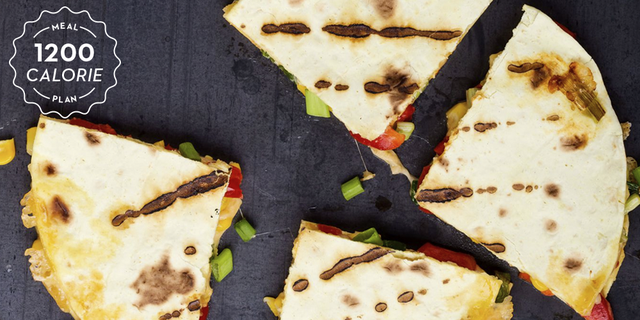
A full, week-long guide that's easy to follow and packed with delicious recipes.
By Delia A. Hammock, M.S., R.D. Updated: Dec 4, 2023 Save Article
Healthy eating doesn't have to be complicated — and it's not! — but it still may not come naturally to everyone. You can learn, though, and once you get the hang of building balanced meals, you'll know which foods do the most for our overall health, as well as which ones contain the nutrients we need for specific things like energy and immunity support, and even how to eat for a specific goal such as weight loss.
If dropping a few pounds is your end game (whether your doctor has recommended it to address a health condition such as type 2 diabetes or heart disease), you can get started doing that in a healthful way by following our 1,200-calorie meal plan. It was created by registered dietitians to take the guesswork out of prepping a full week's worth of healthy and delicious breakfast, lunch and dinner ideas, each of which are comprised of the right mix of foods for healthy weight loss.
While 1,200 calories may be the right amount for some people, it can be very restrictive for most, so always consult with your doctor before deciding to follow a certain eating style, says Stefani Sassos, M.S., R.D., C.D.N, deputy nutrition director for the Good Housekeeping Institute. Depending on your daily activity level, we also suggest checking out our 1,300-, 1,400-, 1,500- and 1,800-calorie meal plans as well.
View this plan as a primer for long-term healthy eating and sustained weight loss, if that's your goal. “A structured plan like this can help you practice and understand the building blocks that make up a balanced diet. Then, you can change things up to suit your preferences and needs, as well as incorporate more of the nourishing foods your body wants to fully customize the plan for you,” Sassos adds. Reaching for nutritious foods more often than not can help save you from yo-yo dieting, an eating trend that can be harmful to your health. However, your weight is just one of many factors that impacts your overall health — staying properly hydrated, getting regular exercise, focusing on good quality sleep and knowing how to dial down stress are also important pieces of the healthy weight puzzle.
It's also important to note that this plan uses 1,200 calories as a base; it is designed to be built upon by doubling, tripling or even quadrupling your servings of veggies at any opportunity and adding more fruits at snack time, too. You can also add on 1–5 ounces of protein at all meals if at any point you’re feeling like it’s just not enough food to keep you satisfied. The combo of fiber from produce and lean protein makes this an adaptable strategy that’ll help you lose weight safely — one meal at a time. You can consider complementing this plan with a daily multivitamin, too.
Weight loss, health and body image are complex subjects — before deciding to go on this diet, we invite you to gain a broader perspective by reading our exploration into the hazards of diet culture.